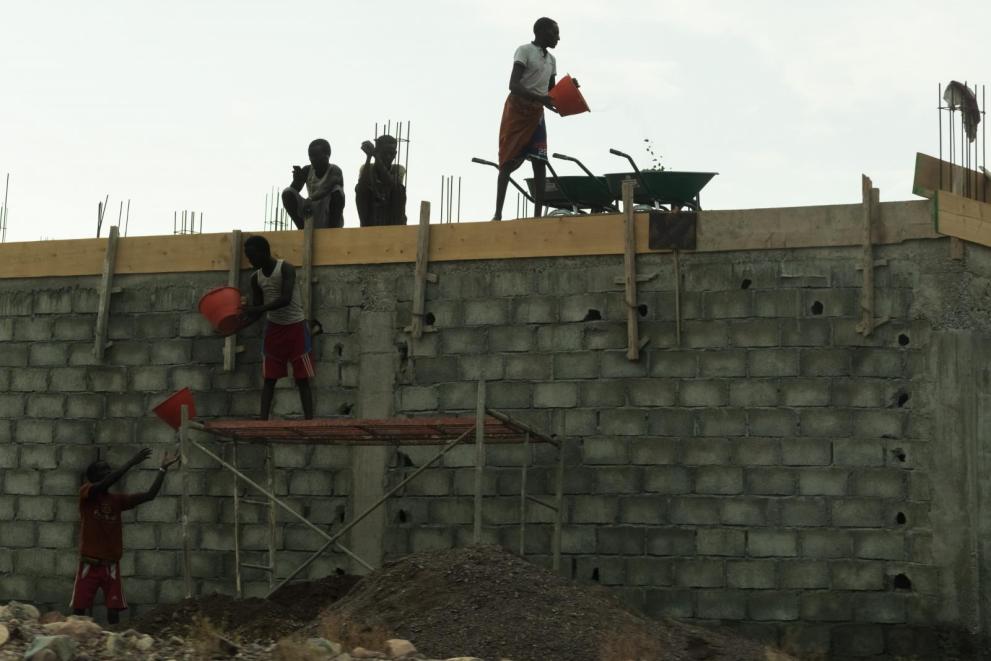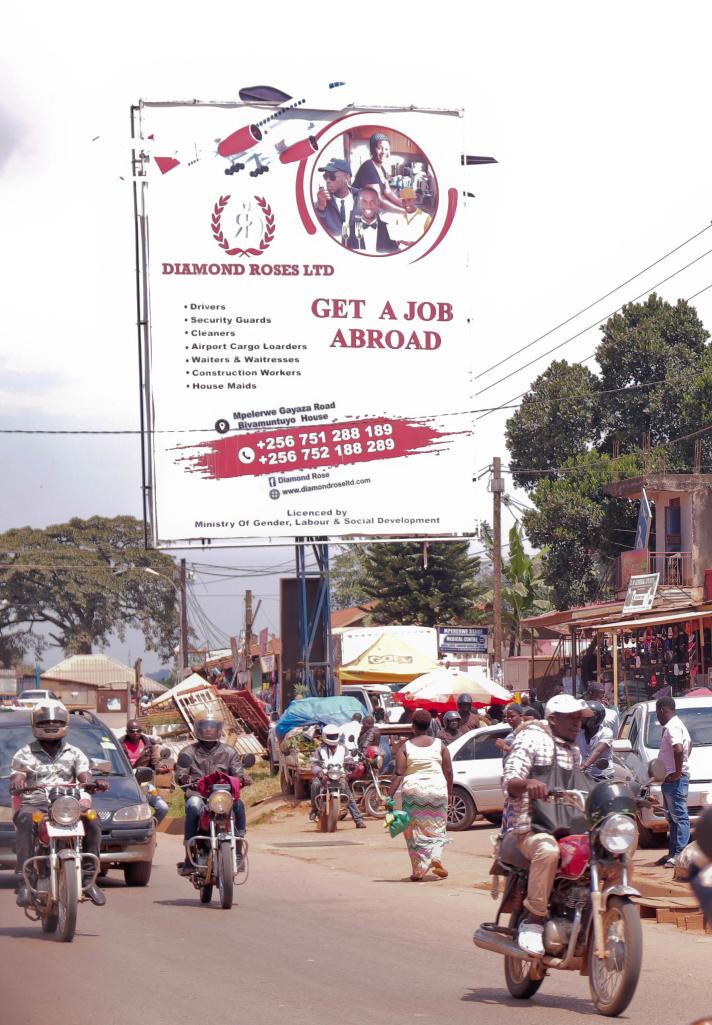
A serious problem facing Uganda is the huge lack of jobs. The Uganda National Planning Authority – responsible to produce comprehensive economic development plans and to coordinate development planning in the entire country - estimates that 83.5% of people aged between 15 and 29 are working in the informal economy or are underemployed in precarious and poorly paid jobs that do not provide them with an adequate income.
As a result, there has been an unprecedented rise in the number of young people moving abroad as migrant workers. According to the Uganda Association of External Recruitment Agencies (UAERA), an umbrella of licenced agencies which are sourcing job opportunities for Ugandans from all over the world, 165,000 Ugandans work in the Middle East (2020), despite numerous cases of exploitative working conditions, sexual and other forms of abuse and human trafficking reported by Ugandan domestic and casual workers abroad.
Protecting Ugandans working abroad
‘External labour migration is a huge sector in Uganda,’ says Milton Turyasiima, Assistant Commissioner of Employment Services at the Ministry of Gender, Labour and Social Development. ‘We are talking about remittances of almost one billion US dollars a year. But we must protect our citizens from the dangers that labour migration can entail.’
Therefore, the Ugandan Government has taken the first steps to identify measures to prevent human trafficking and exploitation, developing the required regulations and pre-departure training for job seekers. ‘A guide on travelling and working in the Middle East and a standardised training curriculum have been developed,’ explains Milton Turyasiima. ‘The training is currently provided by 16 accredited companies at all 216 licensed recruitment agencies in Uganda.’ A monitoring and tracking system will further support all stakeholders in the sector to monitor and report on the human rights situation of Ugandan migrants abroad.
‘We have also signed bilateral labour agreements with Jordan and Saudi Arabia and a memorandum of understanding with the United Arab Emirates on the protection of our citizens,’ Milton Turyasiima adds. In 2020, Labour Ministers of the East Africa and Horn of Africa region, together with the Intergovernmental Authority on Development (IGAD), initiated the 2020 Nairobi Process to forge ways to negotiate as a block with host countries, improve coordination to secure increased benefits for workers and strengthen bilateral and regional partnerships.
Regulations and guidelines prevent exploitation
These measures and improved regulations within the sector aimed at ensuring the safety of migrant workers are a welcome benefit for people like Irene Konga, a 23-year-old woman who spent two years working in Egypt for a Jordanian family. She was recruited and trained by a Ugandan recruitment agency. She praises the professional approach of the company, which provided her with guidance, advice, employment choices, job profiles and training to ensure she understood her rights, responsibilities and entitlements. ‘The agency paid all the bills, including my travel and medical check-ups, and they explained the work. They empowered me to say no to any work obligations that were outside my role according to the work contract I had signed.’ This preparation, Irene says, helped her to manage her relationship and expectations with her employers in Egypt. ‘When I was asked by my employer to carry out additional work outside my contract, I respectfully insisted that they had to call my company back home and change my contract first; my bosses withdrew their demands immediately.’ She maintains that she enjoyed a healthy and cordial relationship with her employers while working in Egypt and received her wages in full before returning home due to ill health. Since her return to Uganda almost a year ago, she has recovered and hopes to move abroad again to work.
Irene’s experience is still out of the ordinary compared to the stories of so many other Ugandans who have been abused, exploited and not paid when working abroad. ‘External labour migration remains a very complex issue,’ remarks Enid Nambuya, Executive Director of UAERA. ‘Given the speed at which the labour migration sector is growing, along with its particular needs and clientele, we can only make step-by-step improvements.’
Background
The Better Migration Management (BMM) programme funded by the European Union and Germany aims to promote safe, orderly and regular migration in the Horn of Africa region. BMM supports the Ugandan Ministry of Gender, Labour and Social Development in fulfilling its coordinating role in managing labour migration issues, including the licensing and supervision of recruitment agencies and the accreditation of foreign employers. The programme also supported the revision of the 2005 employment regulations, the development of the pre-departure training curriculum and the production of a handbook for Ugandan migrant workers providing basic information about travel and useful contact numbers. Recruitment companies also received training, and a pre-departure desk was set up at the airport to check that Ugandan workers intending to go abroad have all the documents needed to migrate.
Details
- Publication date
- 8 June 2022
- Region and Country
- Horn of Africa
- Uganda
- Thematic
- Improved migration management
- Partner
- GIZ

